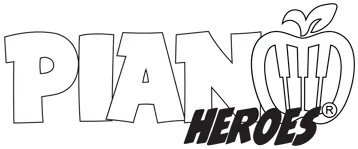In the twenty years of being a piano and music teacher, I have made a variety of mistakes. Fortunately, I have also undoubtedly learned immeasurable amounts of things from my students. One of the most important things that I have learned is how kids like to learn. Their education capabilities are influenced by their environment, which of late has been extremely digitized. We as teachers of all kinds have begun noticing shortened attention spans and restlessness. In addition to that, children today have fast and demanding lives, which can put a lot of stress on them and their educational capabilities. So as mentors and teachers of music we need to improvise, adapt and overcome. For each teacher, the solution is different in its own way. However, I, like many teachers have grown to understand that the best way to learn is through play. For me, it’s through musical games.
Why use the games in your piano studio
According to recent studies: critical thinking and knowledge application games are valuable to the development of both the mind and body. For piano teachers, this means that there is a store of unbreached potential. In addition, musical games are often short and quick, making them perfect for those extra five minutes you never know what to do with at the end of a lesson. Moreover, these games are interactive and all students can learn in the way that best suits them. To further adapt piano games to fit each individual student, teachers can find games which revolve around popular characters of stories. Beyond the shadow of a doubt, the musical game is a foolproof way to make learning fun and not a much-loathed chore.

Type of the games
Considering games range on such a broad spectrum, you will find that they are one of the following general groupings.
- Individual: where a student plays with themselves, for example, trivia or puzzles
- Group: either teacher/student or student/student, namely card or board games
- Racing: a task to be finished in a certain time or before another person
Anyone of these groups provides the perfect opportunity for healthy competition, which in turn motivates your students. They will improve their thorough thinking skills, and memorization and be applying knowledge at any given time. Moreover, games will provide a solid connection between the teacher and students as the game can be played by anyone; parents, siblings, and others. All in all, games are a fun way to learn without getting bored and can motivate your students to learn and come again.
Learn, Play, and Enjoy!
Musical games have a much deeper influence than just students learning what they need to. While students gain academic confidence they will establish social stability, strengthen the sacred teacher/student relationship and gain problem-solving skills. Furthermore, these games are a perfect way for teachers to observe and assess without putting any stress on their students. Undeniably, games are what teachers need to keep up with the quickly evolving education system and rapidly changing students.
What about you?
I hope this post has inspired you to try adding some games to your teaching routine. I will be happy to hear about your experience using games as an educational tool in your music studio. Feel free to subscribe to our newsletter and stay tuned. Start piano studio and enjoy teaching the piano!

